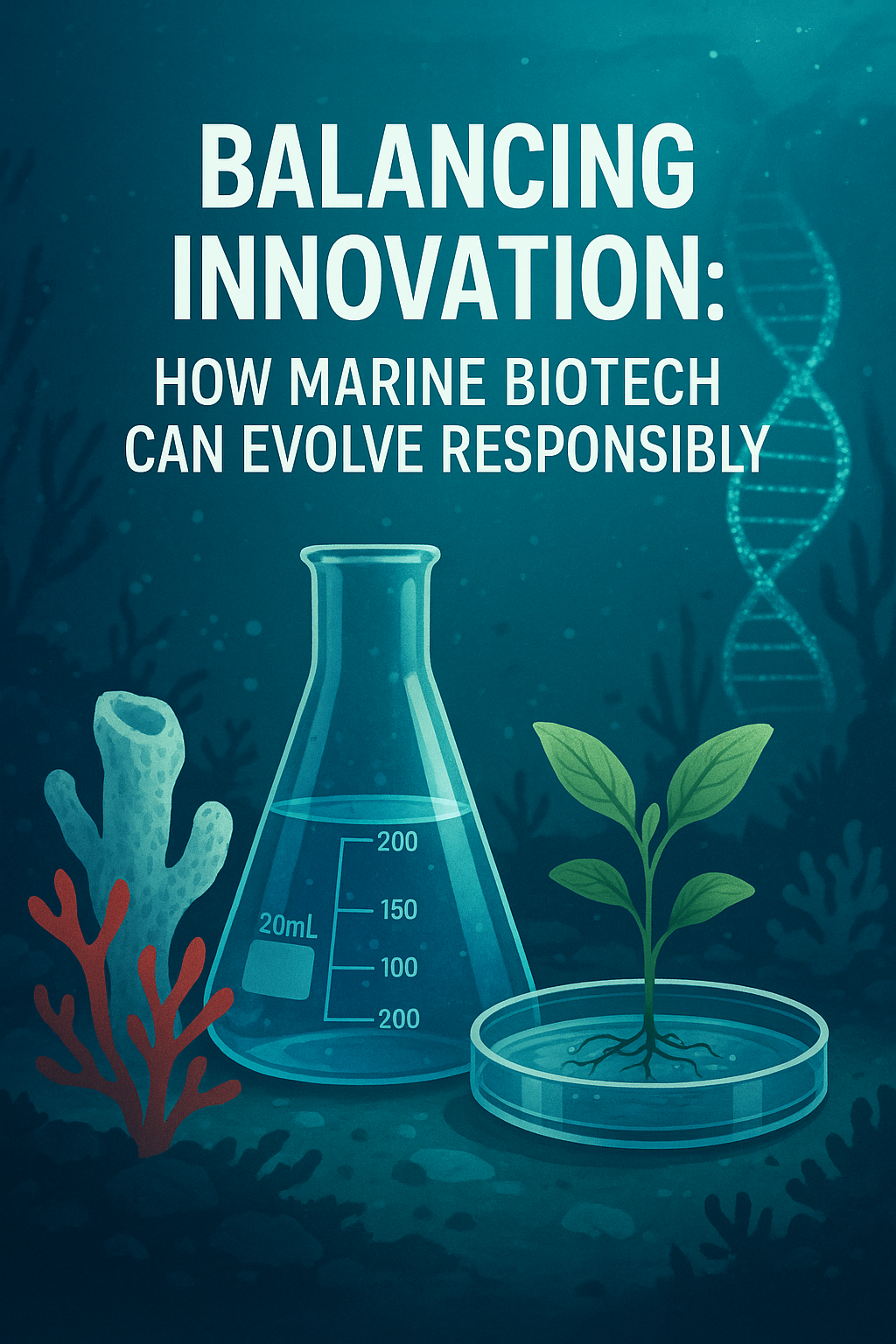Balancing Innovation: How Marine Biotech Can Evolve Responsibly
Pelagic ProblemsWhile marine biotechnology faces valid criticisms from ecological disruption to ethical gaps there are promising solutions already in motion. When compared to terrestrial biotechnology, marine biotech is still maturing, but it’s not too late to shape it responsibly.
Marine vs. Terrestrial Biotech: Key Differences
-
Biodiversity Potential:
Oceans host an immense variety of unexplored life forms many with unique metabolic pathways. Terrestrial biotech, by contrast, often works with organisms already heavily studied. -
Accessibility & Cost:
Land-based biotech typically requires less complex sampling. Marine biotech often needs deep-sea expeditions, pressurized storage, and specialized aquaria driving up costs and limiting who can participate. -
Sustainability Impact:
Terrestrial biotech is slowly integrating sustainable practices, but agriculture and land use issues remain. Marine biotech has a chance to build sustainability from the start, avoiding some land-based mistakes.
Solutions to Marine Biotech Downsides
1. Sustainable Harvesting & Aquaculture
Instead of harvesting wild organisms, scientists can culture marine species in controlled environments minimizing ecosystem disruption. Biotech companies are now investing in scalable marine aquaculture systems for algae, sponges, and more.
2. Ethical Bioprospecting
New international agreements, like the UN High Seas Treaty, push for fair benefit-sharing from ocean genetic resources. Researchers and corporations are being urged to work transparently with coastal communities and share profits or research access.
3. Green Innovation Incentives
Governments and nonprofits are beginning to offer funding for biotech projects that prove ecological responsibility rewarding companies for using closed-loop systems or green lab practices.
4. Synthetic Alternatives
Instead of relying on hard-to-source marine species, some labs are using synthetic biology to replicate marine compounds. This reduces pressure on wild populations while still unlocking marine-inspired innovation.
5. Public Access to Research
Open-source marine biotech research, especially in the form of public databases and citizen science, helps prevent monopolization and encourages collaboration across borders and institutions.
Marine biotechnology doesn't have to repeat the mistakes of terrestrial science. With proactive regulation, ethical research, and ecological respect, the blue biotech revolution can be one that sustains both life and livelihood.

